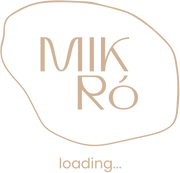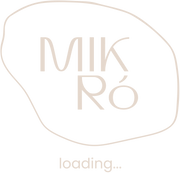If you’re reading this, we want to wish you a huge congratulations on the birth of your newborn!
We are going to share some tips but your only “requirements” for the first few weeks is:
🖤 Adjust to life with your newborn
🖤 Establish breastfeeding (if you decide to and are able to breastfeed)
🖤 Bond with your baby
🖤 Make some time for yourself each day.
That’s it!
All the tips and tricks from this blog post you can start implementing, but please no stressing!
The EASY Newborn Sleep Schedule
Let’s talk newborns and sleep routines! It’s no secret that newborns can be unpredictable and that each day can look a bit different. The science behind why is because newborn babies “circadian rhythm” or body clock has not been set yet. They don’t know the difference between day and night and don’t have proper set sleep cycles yet. These sleep cycles only develop from around 4 months.
So how do you get your unpredictable baby into a routine?
Due to the fact that babies aren’t able to communicate with verbal language, they often read and rely on a caregivers behaviours, or “social cues”, to understand “what’s coming next”. Once babies begin to understand consistent routines, they feel more relaxed moving through their day. A routine helps creates predictable behaviours. It gives us a line of communication to our babies so we know exactly when to make arrangements, run errands, visit the doctor etc.
We highly recommend the Sleep Science EASY routine which stands for, Eat, Awake/Activity Time, Sleep (You-time).
It begins with your infant waking from night or a nap, and the child will “Eat” (full feed), then “Play” (tummy time, errands, walks, etc.), followed then by “Sleep” (a nap or bedtime). This routine then repeats, and allows you to keep baby’s tummy full without checking the clock non-stop, and weakens the association with “needing food to fall asleep”.
After a good sleep babies are well rested, feed better and suck more effectively. After a good feed, babies are wakeful, content and happy to play. When tired babies are settled into their cots after a good feed and play, and they will generally sleep well.
The EASY routine
Eat- this is where babies will take in a big full feeding.
Awake / Activity Time - This time is important for a baby’s mental and physical development. For newborn babies, anything is exciting and stimulating for them. Even just looking at your face! Most babies from 0-12 weeks can only stay awake for 60-90 minutes at a time during the day before they are due to go back down for a nap. Activities for awake time include feeding, burping, nappy free time, skin in skin time, relaxing on the plat mat, being stimulated by the early learning toy bar, going outside for walks or fresh air, looking at faces, looking at the trees and leaves, tummy time, bath time or playing some music. You want to start winding down towards the end of the awake window, especially when you notice your babies tired cues (blank stares, red eyebrows, yawning, rubbing eyes, pulling ears, becoming fussy).

Sleep - Use a short bedtime routine so that your baby knows it is time for sleep e.g. change nappy, swaddle and turn the white noise on! Your baby may nap anywhere from 20 minutes to 180 minutes. That’s okay. It’s completely normal! If a nap has been on the shorter side, the following awake window is likely to be on the shorter side. If your baby has had a nice, big nap, the following awake window is likely to be a bit longer.
You-time - You can’t pour from an empty cup. Take time for yourself and have a nap if you need one. A good Mama looks after herself. If you’re looking after you, you’ll be in the best possible position to take care of your little one. Self care and you time is so important! Aim to have a shower and get dressed while your baby is napping and also squeeze in a bit of rest for yourself too! This is the most important part of your schedule.

Top tips to remember:
🖤Your baby is NOT a clock and hasn’t read this blog post! Each day may differ slightly and that’s okay
🖤 Remember, we want a flexible routine, NOT a strict schedule. The main thing to remember is to try and offer big full feedings every 2-4 hours according to hunger cues and stick to the EASY schedule as much as possible
🖤Watch your little ones awake windows (Most newborns can only stay awake for 60-90 minutes before needing to go down for a nap
🖤 Watch your babies tired signs (this is their way of communicating with you and letting you know they’re ready to go down to sleep)
🖤Help prepare your baby for sleep through bedtime or nap time routine
🖤 Make time for yourself each day
If you’re struggling, please reach out to Jenna and the team at Sleep Science for help.
Sleep Science Guru offers complimentary 15-minute phone consultations, Jenna and the team love to empower parents to create healthy sleep habits for your little one.
Please note: This is not intended to be medical advice. Certain medical conditions may disrupt sleep and must be resolved before implementing any strategies.
About The Author
Jenna has a background in Clinical Psychology and is currently completing her PhD. She has presented her research at national and international conferences and has won numerous prestigious awards for her academic performance, teaching and business such as West Australian Entrepreneur of the year and 40 under 40. She has also been nominated for Young Australian of the Year.
Jenna has a special interest in infant and child sleep and is passionate about preventing mental health issues in parents. She founded Sleep Science Guru and works to educate and empower parents in Australia and all over the world to shape healthy sleep habits for their little one using evidence-based, individualised strategies. Jenna runs successful workshops and webinars for expectant parents and parents with babies, toddlers and children across the country and world. She has enhanced the lives of thousands of families.

TELEPHONE +61 410 295 827
EMAIL hello@sleepscienceguru.com
INSTAGRAM @sleep.science
FACEBOOK @sleepscienceguru


